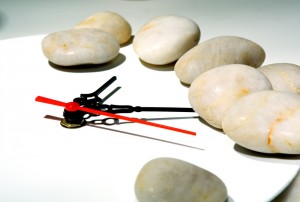All the rage…menopausal women
I had hoped to go for the chocolate trifecta this week. But this video reminded me that I need to devote more time to laughing and less to the clinical side of this transition. While this is definitely a repost, it’s too good to pass up .
Happy Friday and Happy Weekend. Enjoy!
Read More
Sexual desire, age and a whole lotta debunking…
 I can’t tell you the number of times I’ve stumbled across studies or articles about sexual desire. She does, she doesn’t, he does, it doesn’t, take this pill, patch, supplement, eat this food, wear this article of clothing, blah blah blah. Guess what? A lot of it is in your head (or your environment). No really! At least if you are a woman. Granted, waning hormones, namely estrogen, will likely affect vaginal dryness, pliancy and libido, at least to a certain extent. But there is a whole body of literature that points to the importance of the value of, and satisfaction with, partner relationships.
I can’t tell you the number of times I’ve stumbled across studies or articles about sexual desire. She does, she doesn’t, he does, it doesn’t, take this pill, patch, supplement, eat this food, wear this article of clothing, blah blah blah. Guess what? A lot of it is in your head (or your environment). No really! At least if you are a woman. Granted, waning hormones, namely estrogen, will likely affect vaginal dryness, pliancy and libido, at least to a certain extent. But there is a whole body of literature that points to the importance of the value of, and satisfaction with, partner relationships.
I’ve been writing about sexual desire and sexual dysfunction since I started this blog four years ago. And I continue to be frustrated by the number of solutions and panaceas that overlook integral factors like emotions and intimacy. Consequently, I was truly happy to run across another piece of evidence demonstrating the importance of these factors. This time, researchers looked at a cohort of over 800 women who were as young as 40 and as old as 100 and asked them a number of questions about their emotional health, sexual activity and menopausal status. The results? 90% reported that they were in good health, and about half had had sexual activity within a month of being surveyed, with or without a partner. Notably, a large percentage of these women were using hormones.
However, while a third of women reported that they never or almost never felt sexual desire and a third reported having low sexual desire, most of the women who were sexually active indicated that emotional closeness with their partners was key and in fact, was associated with more frequent arousal, lubrication and orgasm. And, guess what? Although aging has often been thought to be a harbinger of low sexual satisfaction (or activity, for that matter), the percentage of women who reported being sexually satisfied actually increased with age, with about half of women older than 80 reporting that they were always or almost always satisfied! Moreover, these older women also had the same degree of orgasm satisfaction as their younger peers!
One of the study’s most important findings was the fact that sexual activity was not always the litmus for sexual satisfaction, and that emotional and physical closeness were almost equally if not more important. Indeed, lead researcher Dr. Susan Trompeter notes that women in the study “who were not sexually active may have achieved sexual satisfaction through touching, caressing or other intimacies developed over the course of a long relationship” adding that “emotional and physical closeness to the partner may be more important than experiencing orgasm.”
Clearly, this research highlights the need to focus on sexual satisfaction rather than sexual dysfunction or limitations to what is commonly perceived as sexual activity. By ignoring intimacy and partner relationships, we do a huge disservice to women. Moreover, it is certainly refreshing to know that it often gets better, not worse over time.
Read More
Three words for 2012: you are beautiful
This past Monday, I asked readers to peruse the archives and choose a post from the year that resonated most with them. My goal was to pay forward some of my good fortune and gratitude, not only for an audience who returns to learn and share about the trials and tribulations of aging and being a woman, but also, to give thanks for the ability to help someone who has not been so fortunate. Margaret Chaivez commented that this post from April of this year, one in which I responded to a reader who called me an ‘old bag,’ spoke to her, adding that she has “realized that make up and clothes can help me morph into something folks like Jimbo may appreciate. Yet without the confidence and self awareness, it means nothing.”
As women, we are often expected to live up to an ideal that is either unrealistic or unreal. And yet, the pressure that is placed on us to do so often comes from within. Ironically, the title ‘menopause’ has caused a lot of women to turn away from Flashfree, not realizing that the time to start embracing is earlier than the ‘pause, and the time to start preparing is the same.
I want to thank Margaret for taking the plunge and having the courage to embrace her beautiful self. And mostly? For helping me help others.
Happy New Year!
Are you an ‘old bag?’
Evidently if you are over 40, you are at risk of becoming one, especially if you are not ‘nice to men.’
I was struck and a bit stunned by a reader comment that I received this week. The comment was in response to a post about the Cougar Convention, and made a point to denigrate women as much as possible.
This is what Jimbo wrote:
Yes, most all women are desparate. Look how they dress. Look at the makeup. Look at what they show off. It is obvious. They are desparate for sexual attention. Yet, they want the attention as if they are in control and giving themselves as a gift. This is a none truth. Women need to get real and look at themselves and their own behavior. They are desparate for sex and men.
When women get to be 40+, they start to get honest. Heck, there is not much time left to pretend. They need to find a man and be real nice to him before they turn into old bags.
A number of readers have responded to Jimbo’s comment, obviously taking offense. I chose to leave Jimbo’s comment up up for the very reason that I don’t censor; afterall, Jimbo is entitled to his opinion. However, I would like to leave Jimbo with this:
Jimbo –
40 year-old+ women are sexy, beautiful and self-assured. They have lived long enough to have gained the wisdom to allow them to feel comfortable in their bodies. And have a tendency to embrace who they are, sometimes even more than their younger peers. Nevertheless, in all fairness, you responded to a post entitled “Pimp your hide,” in which I referred to certain women attending a convention that encourages them to use their sexuality to attract a younger man. This however, is the exception and not the rule; the majority of women I know do not have fake boobs or plumped lips and have not done liposuction. While many color their hair (present company included), don’t be surprised if you find them out and about without makeup or wearing jeans and a tee shirt. Or better yet, out with men their age or older. Yes, Jimbo, women don’t always ‘dress to kill.’
So, Jimbo, I’d like you to see what a soon-to-be 49 year-old looks like – at the gym and home, with or without make-up. I can assure you; I am not an old bag nor do I ever intend to be one.
What does your 40+ look like? Comment or send me a photo and I’ll post! Let’s make Jimbo eat his words.
Read MoreWednesday Bubble: What did you forget? And why?
 If you are like me, you often get up, enter rooms and spend at least five minutes wandering aimlessly around trying to remember why you are there in the first place. And these memory challenges? They tend to worsen as we age and certainly as we move through menopause, not only do to hormones but largely to stress. However, researchers still haven’t completely discerned the ‘what’ from the ‘what’ when it comes to memory, although a current exploration of the topic in the Quarterly Journal of Experimental Psychology certainly lends an interesting perspective: doorways.
If you are like me, you often get up, enter rooms and spend at least five minutes wandering aimlessly around trying to remember why you are there in the first place. And these memory challenges? They tend to worsen as we age and certainly as we move through menopause, not only do to hormones but largely to stress. However, researchers still haven’t completely discerned the ‘what’ from the ‘what’ when it comes to memory, although a current exploration of the topic in the Quarterly Journal of Experimental Psychology certainly lends an interesting perspective: doorways.
Huh?
Yes, doorways, or more specifically, walking through them from one location to another, which according to a team of researchers at the University of Notre Dame, causes us to forget information. The reasons, although fairly complex, appear to be linked to a shift that occurs when one’s boundary or environment does; crossing the threshold causes the brain to go into overdrive to update understanding of ongoing events. So, as we analyze our new environment (i.e. the contents of another room), information that was present in our brains before we crossed the threshold is no longer so readily available.
In a series of three experiments, researchers teased out the ‘why’ of recall or lack thereof. In the first, 31 women were seated in front of a computer simulated game, in which they became totally immersed in moving objects from a table in one room to a table in the same room or in another. However, once they started moving on the screen, the object they were carrying became invisible. And when they were asked to repeatedly recall the objects that they were carrying immediately after entering the new location, recall apparently became slower and less accurate than the recall right after they moved the object across the room.
In a second task, 28 women and 32 men moved through a real world environment, where they chose and then carried covered physical objects from one room to another and then were asked to take a recognition test. Again, their memory appeared to worsen between the rooms rather than within them.
The researchers then conducted a third task, in which they discovered that context is not important and contrary to what many believe, we don’t encode information when we sit in a room, leave it and then return.
The upshot is that it appears that we keep information at hand until some sort of shift occurs and the brain needs to purge it to deal with new information. That shift is as simple as walking through a doorway and once it’s gone, it may be gone forever and irretrievable.
Do hormone shifts make this worse? Who knows? But, your daily memory loss appears to be only a doorway away.
p.s. Writers Charles Brenner and Jeffrey Zacks wrote a great piece about this study in Scientific American. Definitely check it out for more about this research.
Read More
Guest Post Roundup: Sex, Generations and A Whole Lotta Love
As we come closer to the year’s end, I’d like to express my gratitude to a few of my colleagues who took the time to publish their thoughts on Flashfree this year. And, althoughI receive a lot of solicitations, there are few that I feel are worthy of your time or your close read. These, on the other hand, rocked my world, not only because of their breadth and finesse but also because of the love behind the words and thoughts.
This is a Roundup that you don’t want to miss.
[Credit: Special and enduring thanks to artist Darryl Willison of whimsicalwest.com. Please visit his site and support his work!]
- Should fatties get a room? Dr. Brian Hughes has lent his fine prose to this blog several times and often writes insightfully about how our society takes advantage of women. When I stumble across something on his blog that screams Flashfree, I reach out and say pretty please. Brian rocks!
- Should I or shouldn’t I? Oncologist, journalist and educator Dr. Elaine Shattner has spent most of her online bandwidth on discerning the facts about breast and other cancers. Let’s face it; there is a lot of information swirling around the Interwebz and when it comes to figuring out what it means, well, the challenge can be daunting. Want to know more? Elaine’s your girl for the 4-11.
- Anti Anti-Aging, Pro Great Glow. Do you want to fight your years? Or fight FOR them? Writer and author D.A. Wolfe dishes up some provocative prose and challenges the inner you. This one’s got “win” written all over it.
- Counterterrorism, women and 9-11. Doesn’t sound like a topic for Flashfree, does it? But my friend Anne Weiskopf shares a poignant piece about what it means to be a woman. And a mother.
- Want to get your groove on? Move. Alexandra Williams, motivational speaker, fitness writer, radio host and inspirateur nails it with a wonderful post on sex, exercise and wellbeing.
- Vagina’s are like self-cleaning ovens. Wait! What?! Yes, gynecologist and sex expert Dr. Jen Gunter makes a guest appearance to shake up the idea that douching is a good idea.
- Have you crossed the Big M finish line? Author Sarah Bowen thought she had. And tells us how she hit the reset button before the race ended.
- On Becoming Bendy. Author Patti Digh is at it again. She’s changing our world, one day at a time. And wow, has she ever changed hers’ this year. Want to be a better you? Bendy. Who said that Gumby didn’t have an alterior motive?
- Are you becoming your mother? When was the last time you looked in the mirror and asked yourself the very question that my friend, motivational speaker and author Cherry Woodburn asks in this post? Are you a generational profiler?
Just 60 minutes a day…
keeps the symptoms at bay?
You know that I’m all about exercise, not only to maintain fluctuating weight but also to chase those moody blues away . But did you know that increasing your workout to at least 60 minute a day may actually improve wellbeing and lessen menopausal symptoms?
I stumbled across this piece last week and just knew that I had to share. And I am especially interested because it appears that too much exercise can set off early menopause (I’m still looking into this story). But to the study at hand.
Researchers, intrigued by the relationship between physical activity and menopausal symptoms, randomly assigned menopausal women to one of three groups:
- Less than 30 min/day physical activity
- Maintained or increased physical activity from 30 to 6o min/day
- Maintained or increased their physical activity to more than 60 min/day
During the time that participants were studied, their regular, habitual activity was defined as whenever they did something active for at least 10 minutes, e.g., household chores, transportation, etc. Additionally, all were encouraged to be more active (e.g. taking stairs versus an elevator) or at the very least, maintain their current activity levels during the time that they were enrolled in the 12 week study period.
Granted, while the outcomes were modest, the research did show that women who engaged in moderate to rigorous activity for at least an hour a day benefitted both in terms of feeling more positive about themselves and begin able to focus as well as in their personal relationships compared to peers who did 30 minutes or less a day. Overall, almost all menopausal symptoms were also lessened with the highest degree of physical activity. And, the researchers likened the improvements in mental wellbeing to the ability to, at the very least, maintain weight.
An hour of moderate physical activity daily? That’s a lot when your life is filled to the brim and your hours, maxed out. But, at the same time, mid age changes in body composition, hormonal fluctuations and increased risk of heart disease all point to one conclusion: it may be worth it to make the time. If you can’t get to the gym, at least take the stairs.
Treat yourself. You’re worth the hour.
Read More










